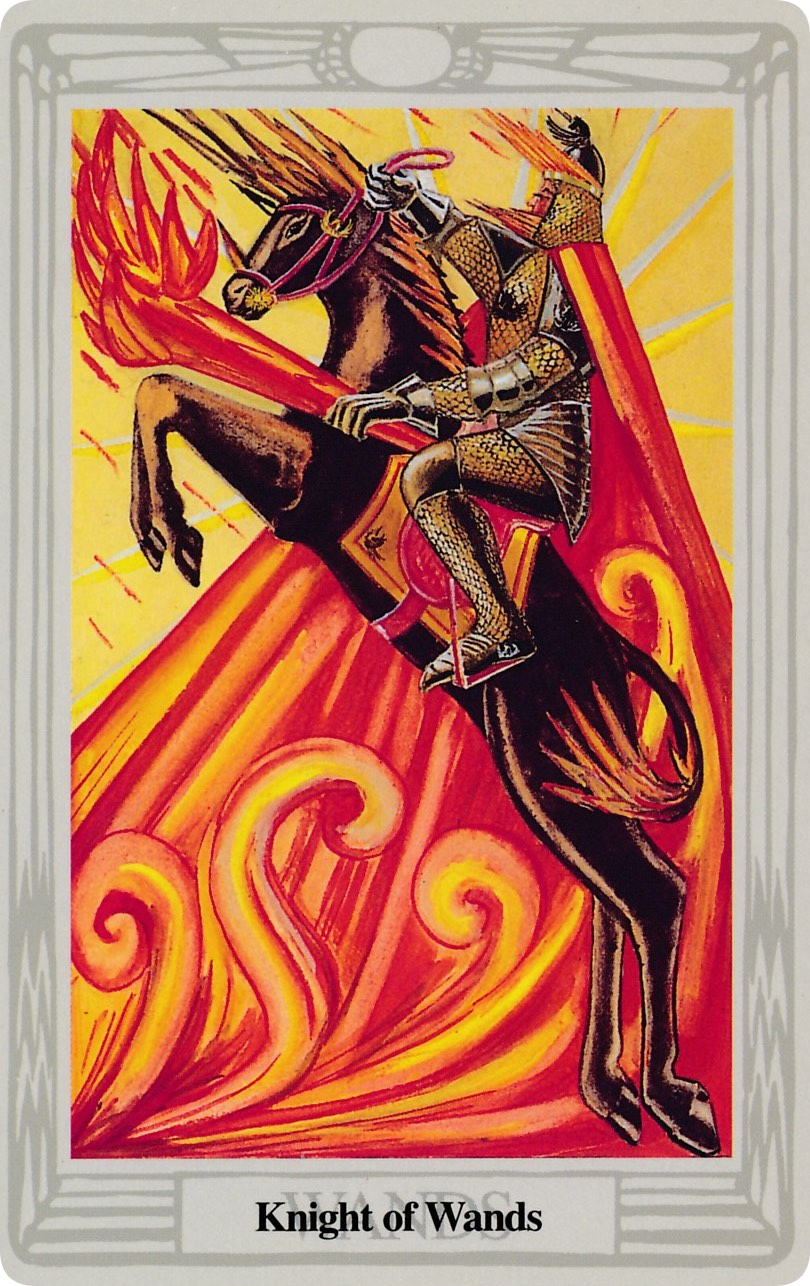The Knight of Wands
The Lord of the Flame and the Lightning
The King of the Spirits of Fire
A Winged Warrior riding upon a black horse with
flaming mane and tail: the horse itself is not winged. The
rider wears a winged helmet (like the old Scandinavian and
Gaulish helmet) with a Rayed Crown, a corslet of scalemail
and buskins of the same, and a flowing scarlet mantle.
Above his helmet, upon his curass, and on the shoulderpieces
and buskins, he wears as a crest a winged black
horse’s head. He grasps a club with flaming ends, somewhat
similar to that in the symbol of the Ace of Wands, but not so
heavy, and also the sigil of his scale is shown; beneath the
rushing feet of his steed are waving flames and fire. He
is active-generous-fierce-sudden-impetuous.
If ill dignified, he is evil-minded-cruel-bigoted-brutal.
He rules the celestial heavens from above the Twentieth
Degree of Scorpio to the First Two Decans of Sagittarius: and this includes a
part of the Constellation Hercules. (Hercules is always
represented with a Club.)
Fire of Fire
King of the Salamanders
“The Knight of Wands represents the fiery part of Fire; he rules from the 21St degree of Scorpio to the 20th degree of Sagittarius. He is a warrior in complete armour. On his helmet for a crest he wears a black horse. In his hand he bears a flaming torch; a flame also in his mantle; and upon the flames does he ride. His steed is a black horse leaping.
The moral qualities appropriate to this figure are activity, generosity, fierceness, impetuosity, pride, impulsiveness, swiftness in unpredictable actions. If wrongly energized, he is evil-minded, cruel, bigoted and brutal. He is in either case ill-fitted to carry on his action; he has no means of modifying it according to circumstances. If he fails in his first effort, he has no resource.
In the Yi King, the fiery part of Fire is represented by the 51st hexagram, Kan. The signification there given is entirely in accord ance with the doctrine of the Tarot, but great emphasis is laid on the startling, perilous, and revolutionary character of the events cognate. The Querent is advised to be apprehensive, yet cool, resolute and energetic: to beware of untimely action, but to go forward with tense confidence in his own ability.
All these correspondences of the Yi King are to be studied in that book (S.B.E. vol. XVI) and reference is here made to the text when important passages are too long to be conveniently quoted.”
— Crowley, The Book of Thoth

